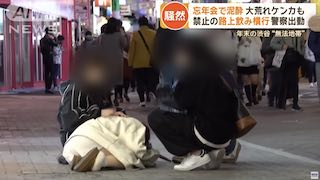Mar 21 (newsonjapan.com) - The history of gambling in Japan is a long and complicated one. For the best part of a century, dating back to a ruling made in the Meiji era in 1907, all gambling activity was illegal.
That's no longer the case. There have been several moves toward introducing gambling to Japan and Japanese people since the turn of the century, from allowing gambling on certain sports to formally legalizing casino gambling in 2018. The permissions granted by that 2018 ruling aren't extensive, but they opened the door to what could be a larger pro-gambling movement in years to come.
At present, only three casinos have been approved since 2018, and they'll appear as part of integrated casino resorts in Yokohama, Tokyo, and Osaka. It's still illegal to open standalone casino facilities, but that might not remain the case forever. The casinos will join a growing gambling industry within the country that also allows for betting on public sports, and a public lottery. The official reason for relaxing the previous ban was to provide local and national governments with a new income stream and to allow citizens access to a form of entertainment that was already enjoyed in much of the rest of the world. As those revenue streams have proven to be lucrative, there has been much speculation as to whether other forms of gambling may soon follow. And for those who prefer online gambling from the comfort of their own homes, most choose to play holdem tournaments.
When we talk of 'other forms of gambling,' what we really mean is gambling online. In the United States of America, the United Kingdom and most of mainland Europe, citizens have access to online slots websites. Those websites allow users to enjoy playing burning wins slot in their own homes, and in some cases, even play on the move using mobile phones. Despite their name, they often offer far more than just online slots. It's not uncommon for a website that offers online slots to also offer roulette and bingo games and even simulated or live-action poker and blackjack. Right now, playing online slots is prohibited in Japan even if it's done via a website based outside the country - but is that stance about to change?
Our primary reason for asking is that one of the currently-permitted gambling avenues is about to take a major hit. Because of the spread of the coronavirus, sports are being canceled in every major country. That includes almost all of the sports that Japanese betters like to wager their money on. The toto game allows for betting on football, but there will be no toto bets placed if there are no football games being played. The global sports betting industry is already suffering from the effects of the lack of currently-active sports to bet on, and there's no reason to believe that the slowdown won't also be felt in Japan. Where there's no money being earned by the companies that offer sports betting, there's no money to be made by governments from taxation or revenue splits.
It isn't just the loss of funds from sports betting that's likely to be causing headaches for governments at both the regional and national level at the moment. At the time of writing, the country still plans to go ahead with the Tokyo Olympics in July as planned. As almost every other summer sport has been canceled - including the Euro 2020 soccer tournament - it's hard to imagine that position remaining the same unless an effective vaccine is found to combat the spread of COVID-19 in the next one to two weeks. Athletes have already said that they're uncomfortable with the idea of traveling for the Games, and many of the potential stars of the competition have said that they're unable to train for their chosen events due to the current restrictions in place in their home countries. Realistically, if the Olympics do go ahead on schedule, they'll do so in a diminished state.
It's easy to see why the government would want to keep the Olympics going. Hosting the Games has been a source of great national pride, and planning has been ongoing for several years. The thought of all that planning and preparation going to waste is a terrible one, and it would disappoint many people who have been looking forward to attending the Games in person. If athletes or nations pull out, though, and travel bans remain in place, there will be no alternative but to put the tournament on hold. That will put a dent in public finances. It costs money to host an Olympics, but the Games also bring in a fortune in ticket sales, sponsorship, television rights fees, and tourism. When budgets were drawn up at the start of the year, the expected windfall from the Olympics would have been included in projected income figures. Without that income, there's going to be a hole.
While people undoubtedly have moral objections to the spread of gambling, opening up access to online gambling would undoubtedly help to soften that financial blow. It's a fact that illegal gambling happens in Japan, and it's also a fact that the legal gambling avenues that are on offer are all very popular. If online slots websites and online casinos became available, there's little doubt that there would be a wide customer base willing to pour money into them. That would mean more money for the government, and it's money that would arrive quickly. It wouldn't come with the same sense of pride that the Olympics revenue would have brought, but if replacement cash is needed - which seems likely - it's an easy place to turn. In practical terms, it would just be a common-sense replacement for the sports betting options which have disappeared over the past few weeks, and may not come back for some time.
Given the way that Japanese gambling laws have been headed in the past few years, allowing online gambling was probably an inevitability in the long term anyway. If that's the case, then it might make good sense to bring that decision forward, and open up the markets to the activity this year instead of waiting any longer. As a global industry, online gambling brings in billions of dollars every year. If there's a billion-dollar industry on the doorstep and Japan has the infrastructure to gain access to it - which it does - it may be the case that the government soon decides it makes more sense to let it in than keep it out.














